Installation of Log4jAPI package of Log4j is distributed under the Apache Software License. The latest version of log4j including full source code, class files, and documentation can be found at http://logging.apache.org/log4j/1.2/
For windows download the .zip file or for Linux OS use the .tar.gz file. Here, I am using Windows OS. 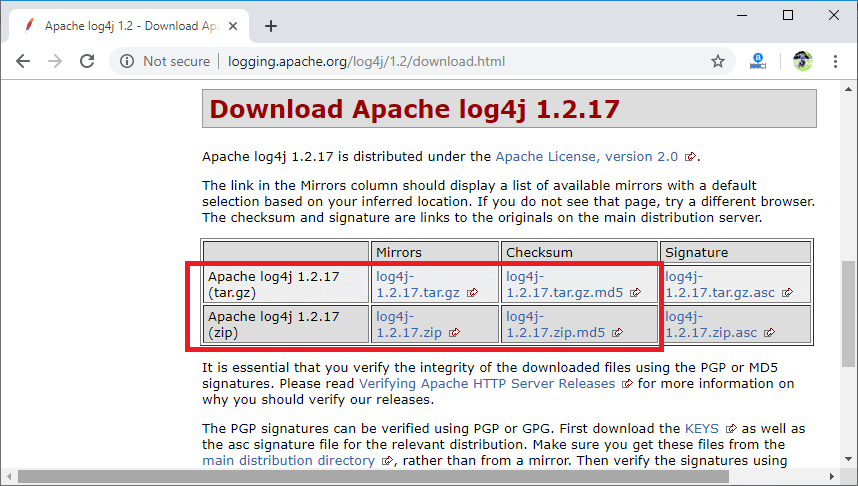
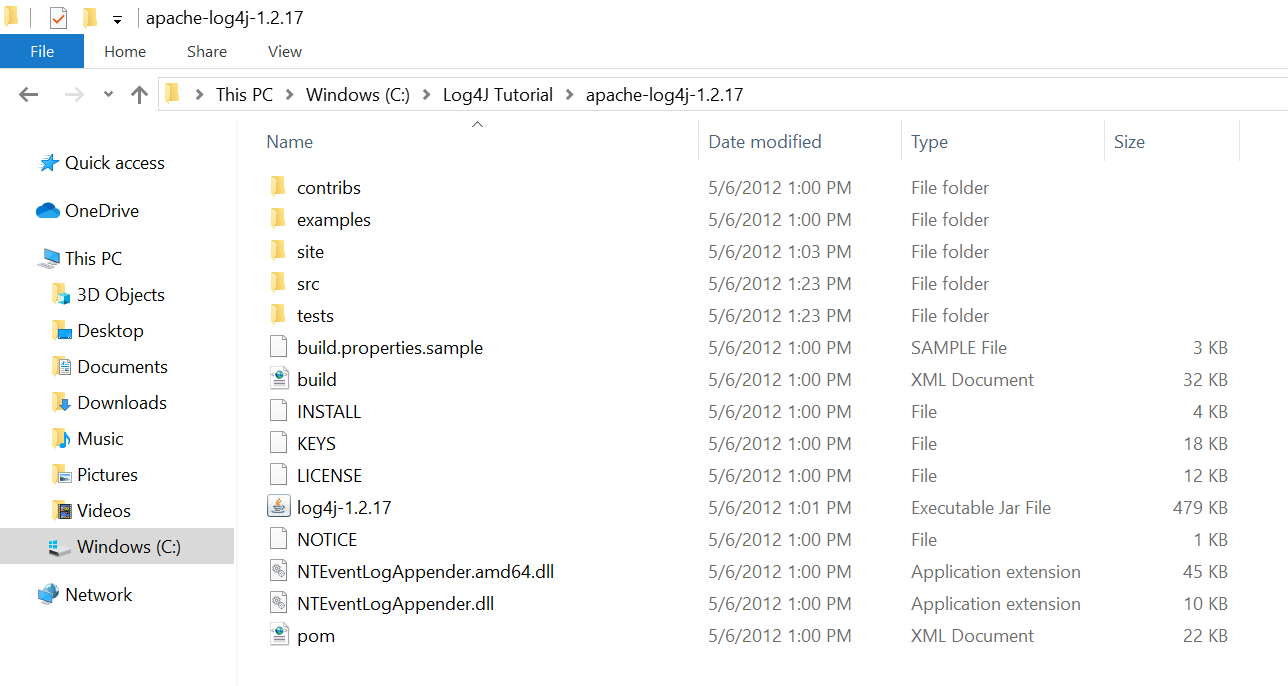
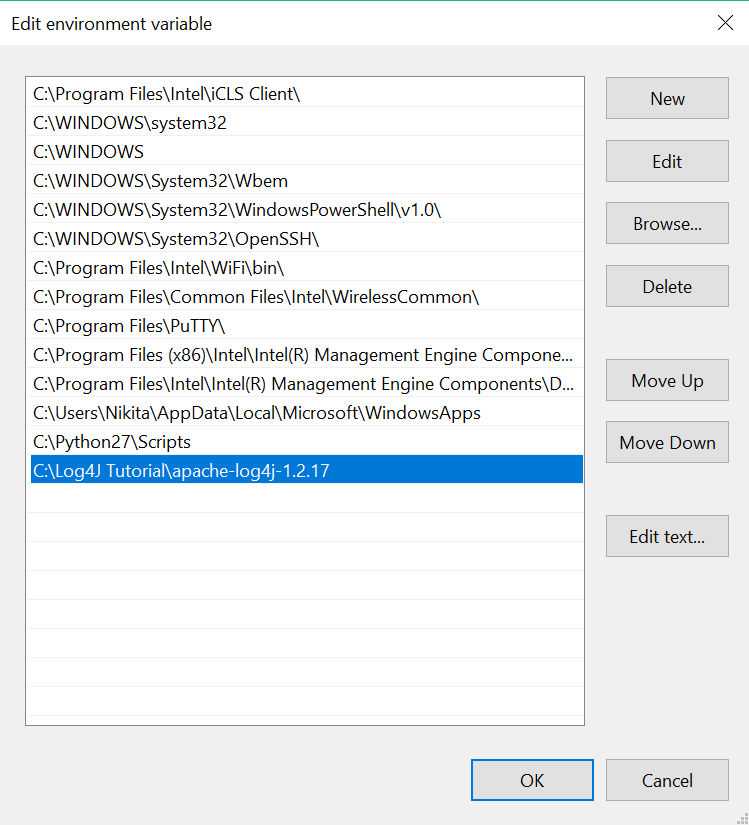
For Linux:
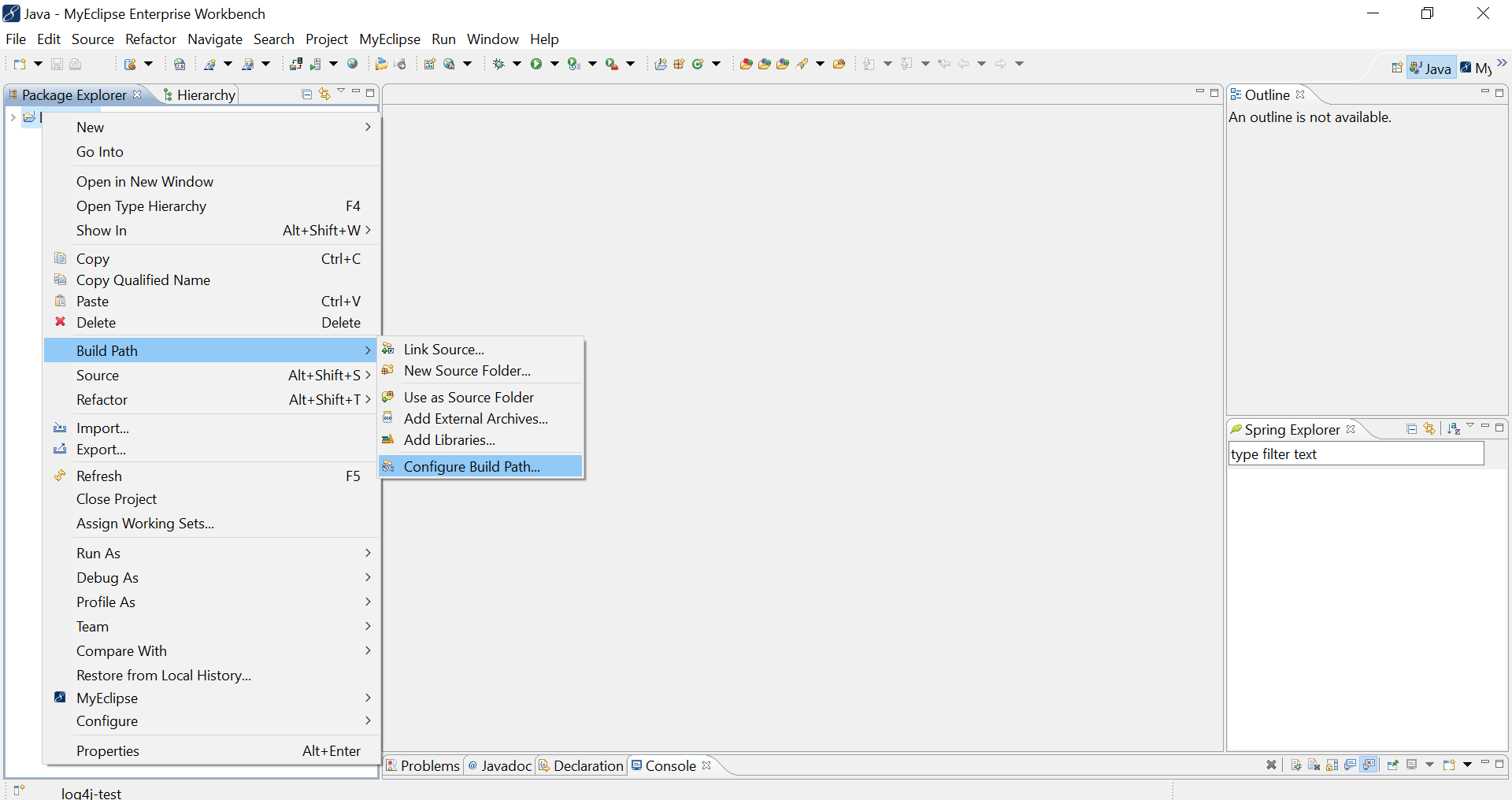
Go to the Libraries tab and click on Add External Jars button. 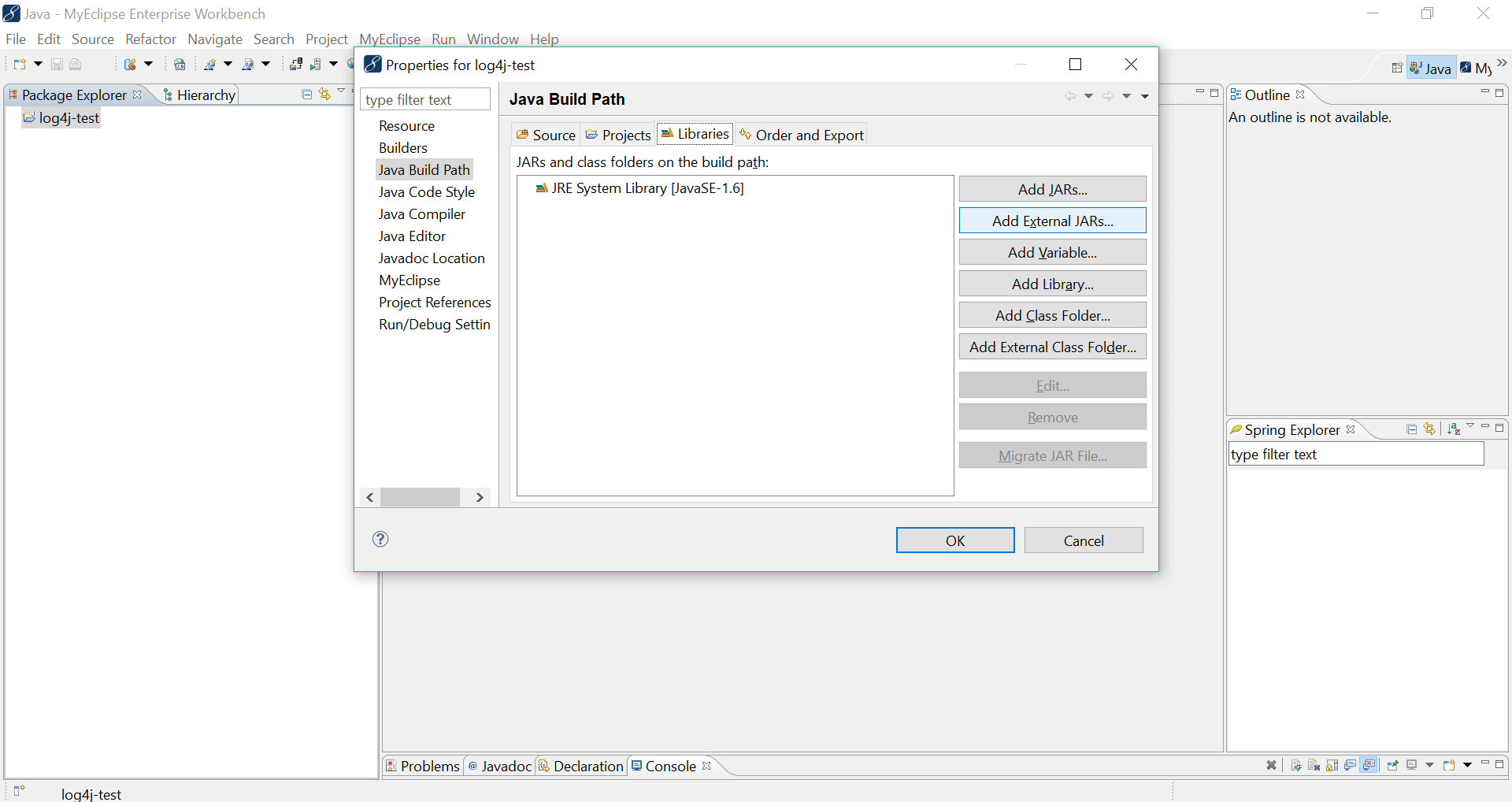
Browse the jar file of log4j (i.e., log4j-1.2.17.jar) from your unzipped folder. 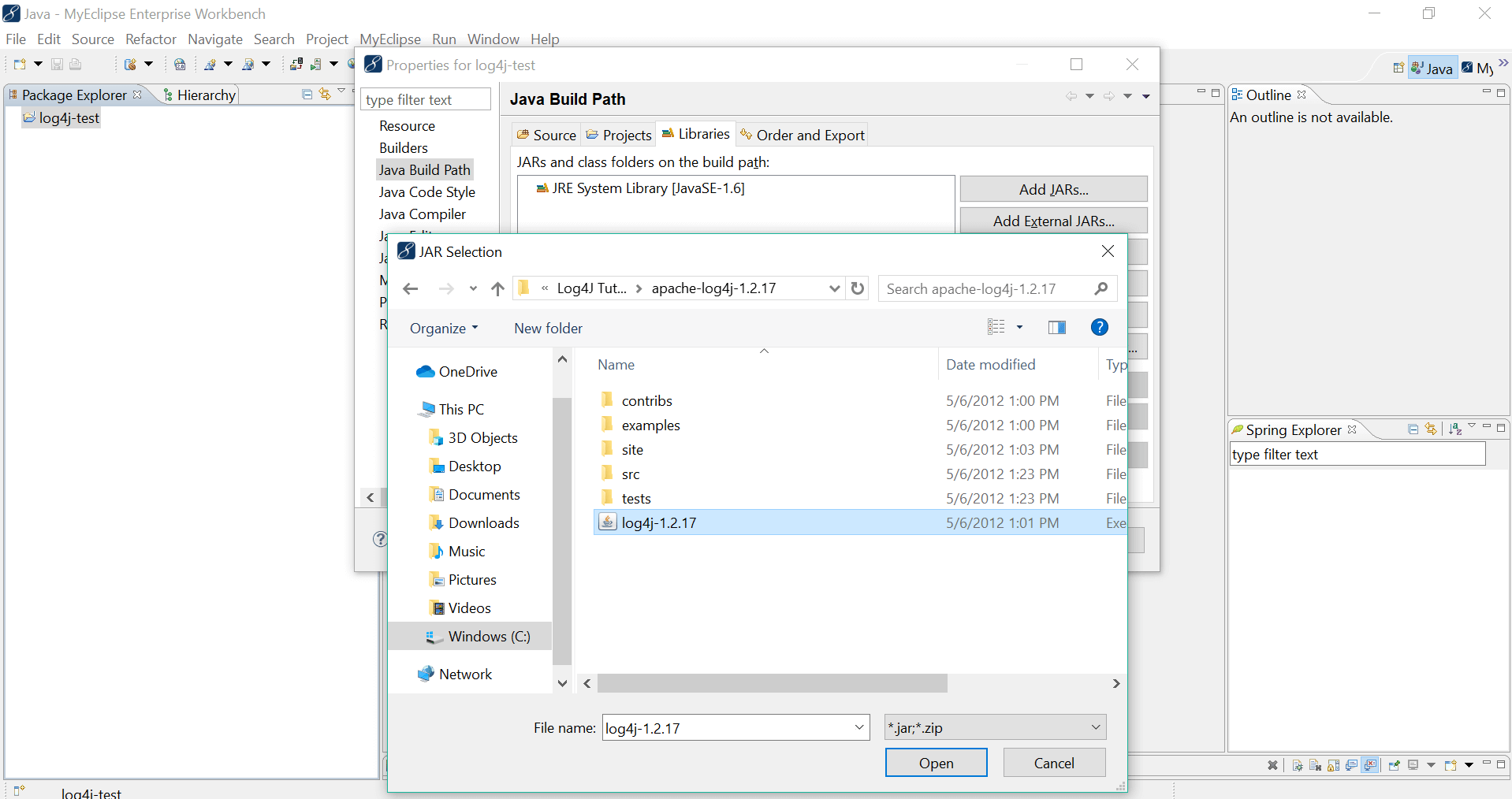
Click on OK button to close the dialogue. 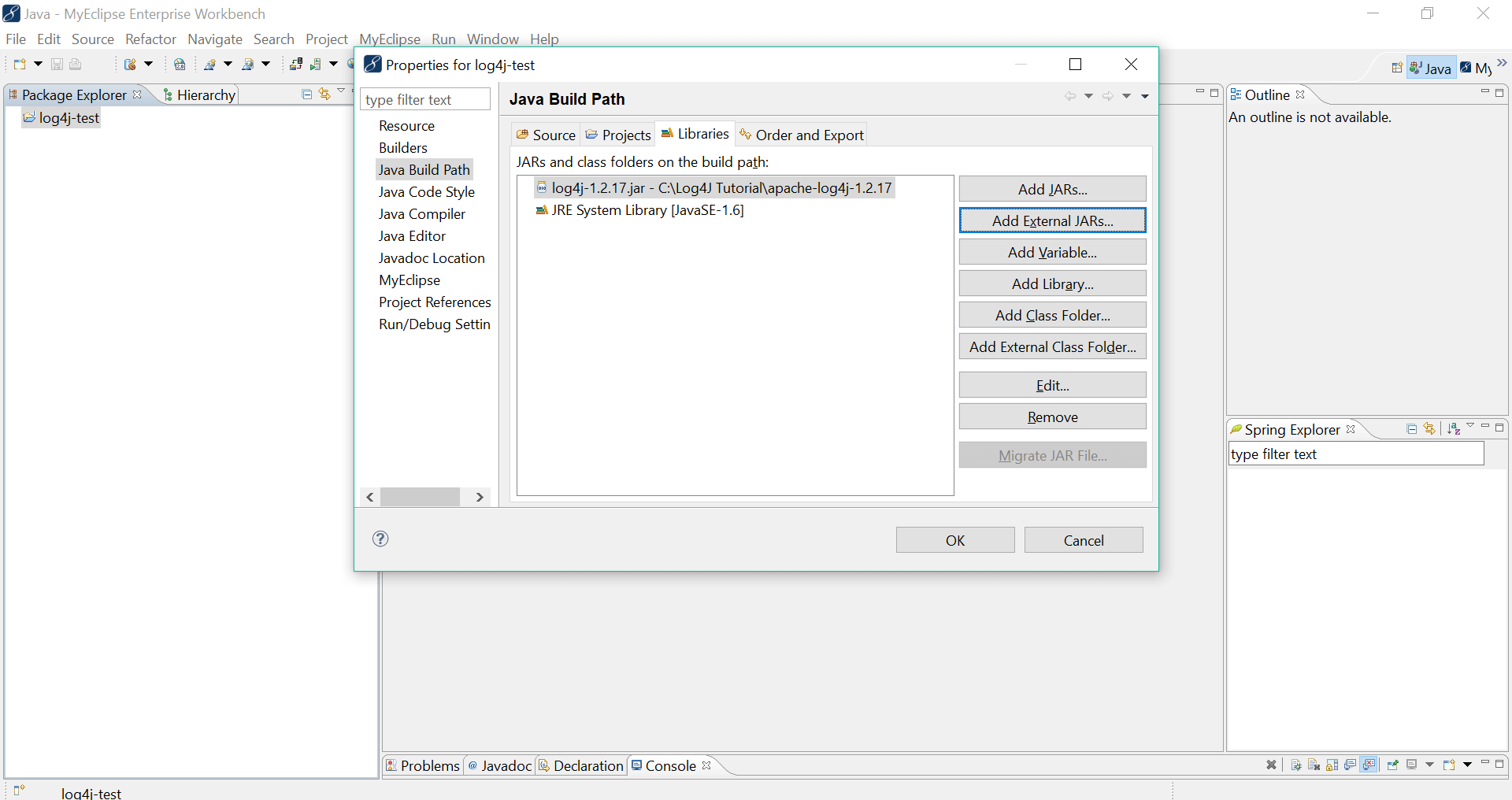
Supporting LibrariesWe can use log4J to log information to various destinations, such as sending an email, to a file or to a database. There are lists of libraries that we need to put to the classpath so that log4j can pick it up and use it. If we need to send the email from log4j, we should have the email library jar file. All the libraries are optional and depend on us that what features, we are going to use with log4j framework:
Next TopicLog4j Architecture
|
 For Videos Join Our Youtube Channel: Join Now
For Videos Join Our Youtube Channel: Join Now
Feedback
- Send your Feedback to [email protected]
Help Others, Please Share










